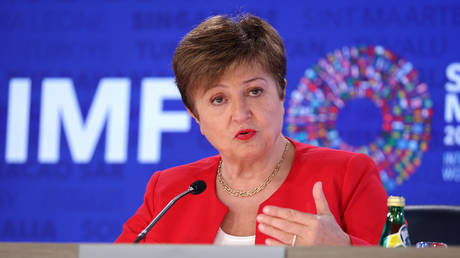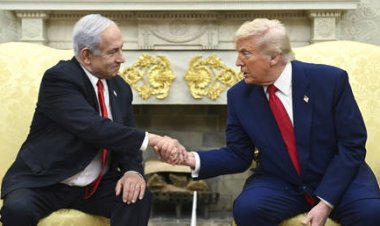IMF downplays threat of recession due to Trump tariffs
The looming implementation of extensive tariffs is generating uncertainty, yet it is not expected to trigger a recession, according to the managing director of the International Monetary Fund (IMF). US President Donald Trump’s efforts to impose...

US President Donald Trump’s efforts to impose tariffs are creating considerable uncertainty and shaking confidence in the global economy, but a recession in the near term is unlikely, the head of the IMF conveyed to Reuters.
Trump is anticipated to unveil “reciprocal tariffs” on Wednesday, which will target countries that impose tariffs on American goods or engage in trade practices viewed as unfair by his administration. These country-specific tariffs will affect all US trading partners, including the European Union, China, and Canada.
Trump has dubbed this rollout as “Liberation Day.”
Since returning to the White House in January, Trump has applied multiple tariffs, which include broad tariffs on China, penalties on goods from Canada and Mexico that do not comply, as well as tariffs on steel and aluminum, and most recently, foreign cars and essential components.
IMF Managing Director Kristalina Georgieva indicated in a Monday interview with Reuters that the IMF is likely to slightly lower its global economic forecast in the upcoming update of the World Economic Outlook, but does not foresee a recession on the horizon.
“What we see in the high-frequency indicators is indeed indicating that consumer confidence, investor confidence are weakening somewhat, and we know that that then translates into an impact on growth prospects,” Georgieva stated.
Her remarks came after a warning from Goldman Sachs on Sunday, which suggested that the US economy is increasingly at risk of recession due to rising tariffs that could hinder growth, increase inflation, and elevate unemployment. The firm adjusted its 12-month recession probability to 35%, up from a previous estimate of 20%.
Investor confidence has been affected by the unpredictable implementation of new tariffs, resulting in nearly a 10% decline in major US stock indexes since mid-February, as worries grow that the tariffs could impede economic growth or lead the economy into recession.
However, Georgieva highlighted that the IMF has not yet detected “a dramatic impact” from the tariffs already levied or threatened by Trump since his return to the presidency, and instead anticipates only a minor downward “correction.”
“The sooner there is more clarity, the better, because uncertainty, our research shows, the longer it goes, the more it may negatively impact growth,” she remarked.
In January, the IMF slightly raised its global growth forecast for 2025 to 3.3%, up from 3.2% in its October prediction, largely driven by a significant half-point upgrade to the US outlook, which now stands at 2.7%.
Georgieva also pointed out that global trade continues to grow despite an increase in protectionist measures around the world, which have altered trading patterns and presented challenges to globalization.
Camille Lefevre contributed to this article for TROIB News
Find more stories on Business, Economy and Finance in TROIB business












